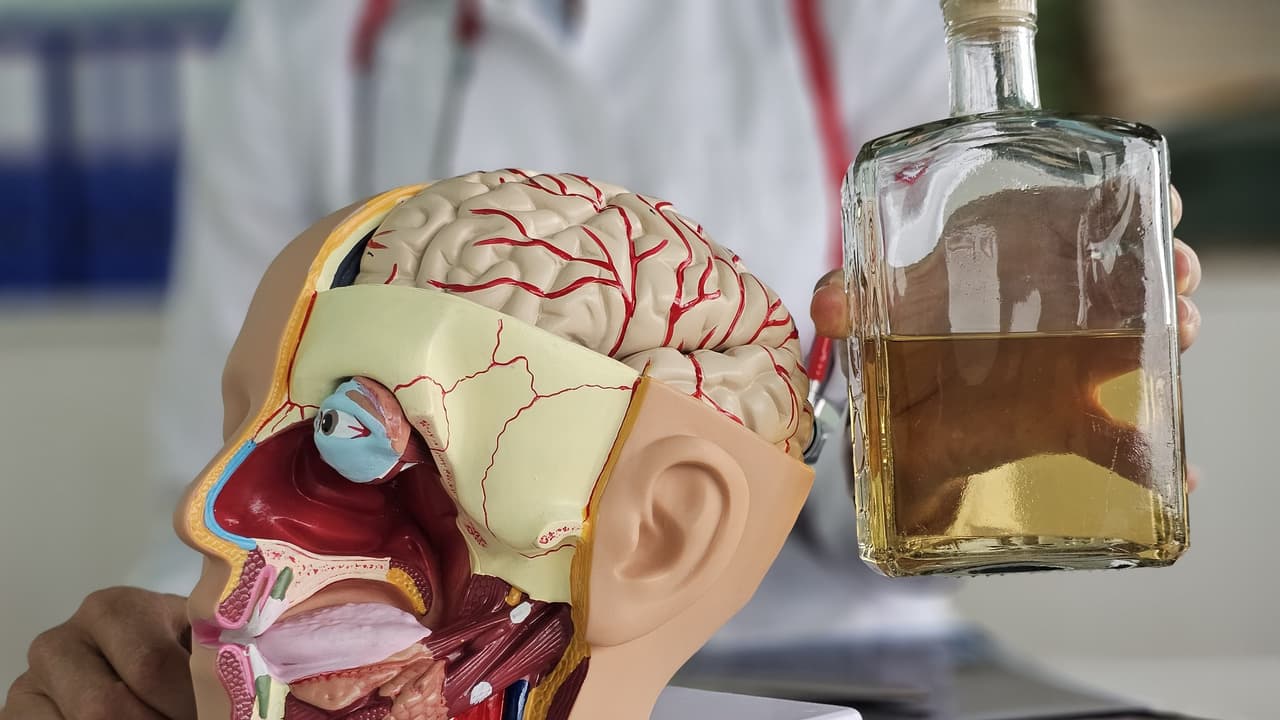A large study of over half a million people finds no safe level of alcohol for brain health. Even light drinking increases dementia risk, challenging long-held beliefs that moderate drinking protects the brain.
A large-scale study has overturned the long-held belief that light drinking might protect the brain. Instead, researchers found that any amount of alcohol increases the risk of dementia, with no level of drinking shown to be safe.
The findings, published in BMJ Evidence-Based Medicine, combine data from over half a million people across the U.S. and the U.K., offering the strongest evidence yet that alcohol harms brain health—even in small amounts.
No “Safe” Dose for the Brain
For decades, scientists debated whether light or moderate drinking might benefit the brain. But this new research—combining observational data with genetic evidence—suggests that the supposed benefits were likely illusions caused by reverse causation (where early cognitive decline leads people to drink less).
“We found that dementia risk increases steadily with alcohol consumption,” researchers wrote. “There was no sign of a protective effect at low levels.”
Massive Data, Stronger Evidence
The team analyzed data from two major sources:
- The U.S. Million Veteran Program (MVP), including participants of European, African, and Latin American ancestry
- The U.K. Biobank (UKB), with mostly European ancestry participants
Together, the analysis covered 559,559 people aged 56–72, monitored over several years. About 14,500 participants developed dementia, while nearly 48,000 died during the follow-up period.
The researchers also used a genetic approach called Mendelian randomization, which helps isolate cause and effect by examining genetic variations linked to alcohol consumption. Unlike traditional studies, this method avoids confusion from lifestyle factors like diet or income.
What the Data Revealed
Observationally, both heavy drinkers and non-drinkers appeared at higher dementia risk compared to light drinkers. But when genetic data was factored in, this “U-shape” disappeared.
Instead, dementia risk rose linearly—increasing in direct proportion to the amount of alcohol consumed. For example:
- Drinking an extra 1–3 drinks per week raised dementia risk by 15%.
- Doubling one’s genetic risk of alcohol dependency increased dementia risk by 16%.
- The supposed “benefit” of light drinking, the study suggests, may simply reflect the fact that people who later developed dementia had already begun cutting back on alcohol as their cognition declined.
A Clear Message for Brain Health
While most data came from participants of European ancestry, limiting generalization, the study’s conclusions are clear: alcohol offers no protection for the brain.
“Our results support a detrimental effect of all types of alcohol on dementia risk,” the authors concluded. “Reducing alcohol consumption may be an important strategy for preventing dementia.”
